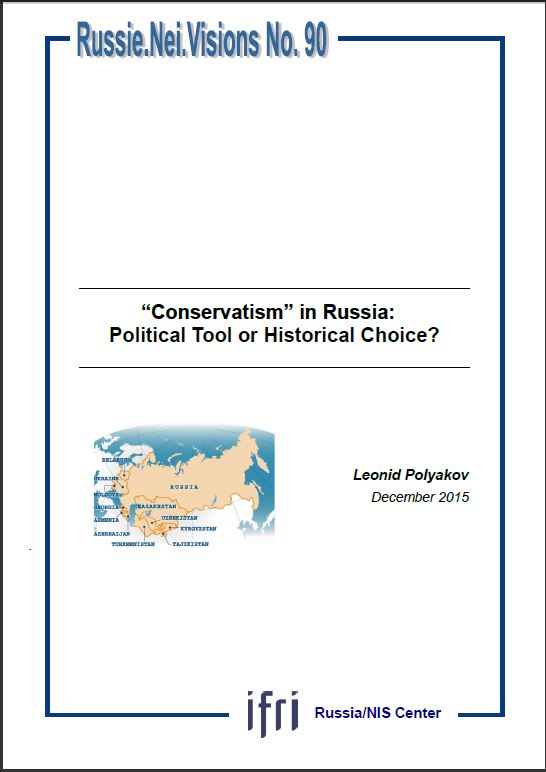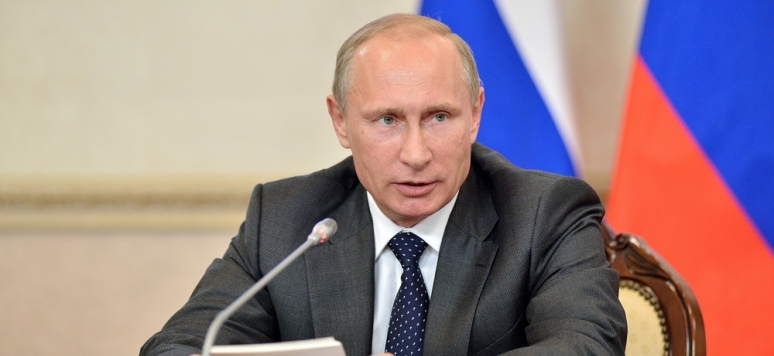“Conservatism” in Russia: Political Tool or Historical Choice?

President Vladimir Putin’s third term of office proceeds under the “conservative shift.” Does this mean that the Russian government has finally opted for conservatism as its official—though not state—ideology, with long-term consequences for both its domestic policy and foreign policies?

Or is the reversion to conservatism merely the latest in a line of political devices used by the Kremlin to solve its own problems—which include the struggle against liberal opposition and the need to increase the regime’s legitimacy?
Both points of view are represented in the writings of Russian and foreign experts. This article attempts to take into account the arguments of both sides while at the same time suggesting that the “shift back to conservatism” is something more than the latest in a line of political devices by the Kremlin. And whether or not the Russian government solves a few of its immediate problems with its help, the turn to conservatism itself provides new potential opportunities for the alignment of a long-term strategy.
As far as domestic policy is concerned, conservatism as a meta-narrative may appear to be a continuation of the earlier “sovereign democracy” discourse while at the same time offering an ideology to cement Russian federalism. In foreign policy, a conservative Russia may appear a more desirable partner not only for the European right but also for the countries of the Asia-Pacific region. This is significant given the recent “pivot to Asia” clearly signaled in Russian foreign policy.
Leonid Polyakov is a professor in the Political Sciences department at the Social Sciences faculty of the National Research University Higher School of Economics, in Moscow.
Download the full analysis
This page contains only a summary of our work. If you would like to have access to all the information from our research on the subject, you can download the full version in PDF format.
“Conservatism” in Russia: Political Tool or Historical Choice?
Related centers and programs
Discover our other research centers and programsFind out more
Discover all our analysesRussia, the Palestinians and Gaza: Adjustments after October 7th
The Soviet Union (USSR), and subsequently the Russian Federation as its internationally recognized legal successor, has consistently sought to play a visible role in efforts to resolve the Israeli-Palestinian conflict.
Deathonomics: The Social, Political, and Economic Costs of War in Russia
The report attempts to outline and examine a truly new phenomenon in Russian society, dubbed “deathonomics”—the making of a mercenary army against the backdrop of the Kremlin’s war in Ukraine, eventually replacing both the Soviet (conscript) and early new Russian (contract) armies. It notes that, by the end of 2023, this trend had turned the military service into one of the highest-paying professions in the country, something not seen in Russia on such a scale since the late 17th century.
Russia's Asia Strategy: Bolstering the Eagle's Eastern Wing
Among Russia’s strategic priorities, Asia traditionally played a secondary role compared to the West. In the mid-1990s, then Foreign Minister Yevgeny Primakov initiated a rapprochement with China and India. Then, in 2014, deteriorating relations between Russia and the West prompted Moscow to begin its “great pivot to the East”.
Kazakhstan After the Double Shock of 2022: Political, Economic and Military Consequences
The year 2022 represented a dual shock for Kazakhstan. In January, the country faced its most severe political crisis since independence, followed in February by Russia’s full-scale invasion of Ukraine, which cast uncertainty over the borders of post-Soviet states. These consecutive crises profoundly shaped Kazakhstan’s domestic and foreign policy.











